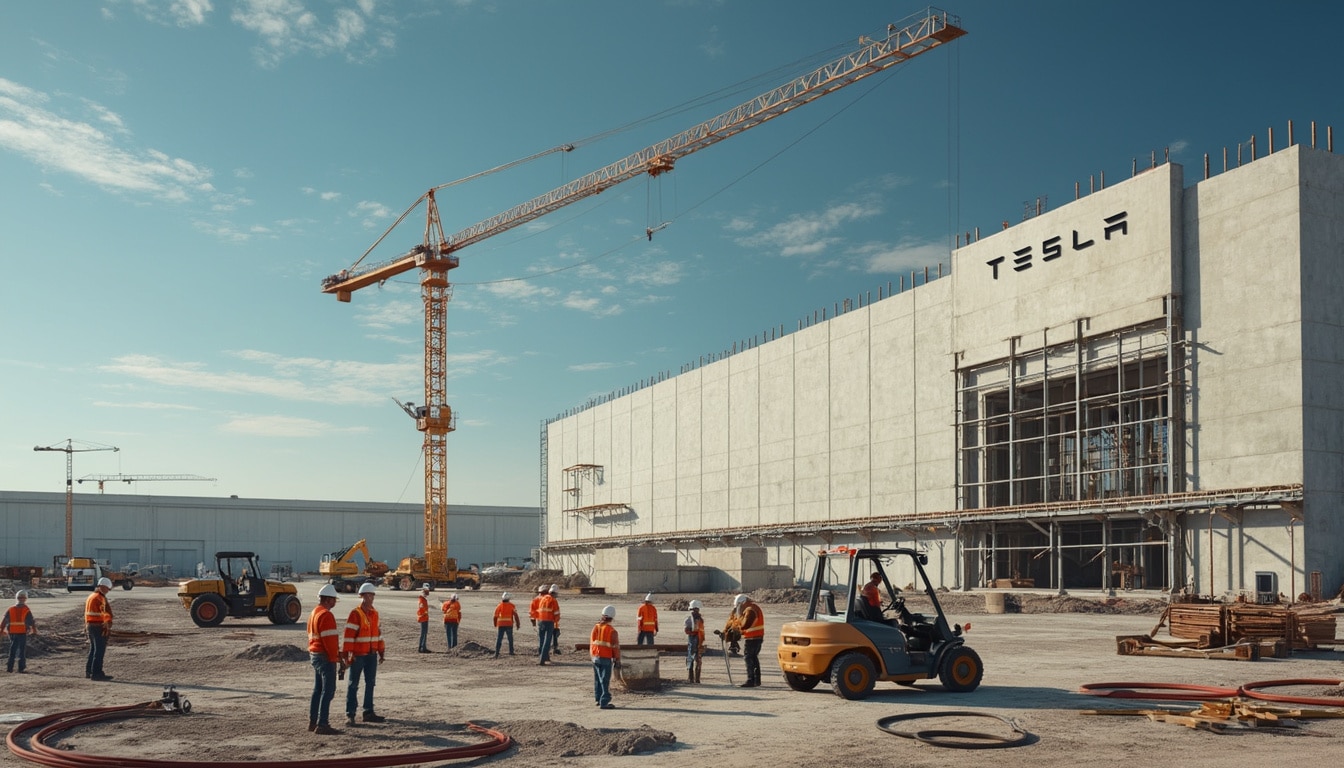This article delves into the often-overlooked contributions of undocumented workers in the construction of Elon Musk’s Texas Gigafactory. Through a blend of interviews, reports, and extensive research, we reveal the integral role these individuals played in building the infrastructure for one of the world’s largest tech facilities. The landscape of the American job market is complex, and understanding the hidden threads that weave together the stories of success is crucial.
As we navigate through Musk’s controversial history regarding immigration, it becomes apparent that the workforce behind the scenes often challenges the narratives portrayed by high-profile figures. With a keen focus on the lived experiences of these workers, we confront the societal perceptions surrounding undocumented immigration. Their presence in high-profile projects like the Gigafactory brings forth questions about equity, labor rights, and the broader immigration discourse.
The Power of the Undocumented: Contribution to the Gigafactory
The Gigafactory in Texas stands as a monument not only to technological advancement but also to the labor that brought it to life. Remarkably, a substantial number of these workers were undocumented immigrants, whose skills and determination were paramount in realizing this ambitious project.
Many of these individuals traveled vast distances, hoping to secure a better future not just for themselves but for their families. Their resilience is a testament to the spirit of those who take on laborious tasks often overlooked by society. With a strong determination to make a living, undocumented workers became the backbone of the construction efforts while facing significant risks.
The construction environment was particularly tough; workers faced long hours under stringent deadlines, often without the security of proper documentation. According to reports, these undocumented workers were instrumental in various trades necessary for the Gigafactory’s construction. This includes electrical work, plumbing, and structural building. Despite the challenges they faced, their contributions were essential to meeting the ambitious timelines set by Musk and his team.

Personal Stories: Voices from the Ground
Among those who worked on the Gigafactory, there are countless personal stories that reveal the human side of this undertaking. From tales of perseverance to accounts of the struggles faced daily, these narratives highlight the diverse backgrounds and aspirations of the workers.
One such story is that of Marco, a skilled electrician who has worked in the U.S. for over ten years without legal status. Dreaming of a better life for his children, Marco risked his safety and security to contribute to the Gigafactory, believing that this job could provide a stepping stone toward achieving his American dream. His commitment to his craft and family sheds light on the motivation behind the labor.
Another perspective is that of Sofia, a dedicated laborer whose family has a long history of working in construction. Her experience reflects the challenges faced by many undocumented workers; regardless of their hard work, they often find themselves in precarious positions, balancing the necessity of providing for their families while grappling with the fear of deportation. The emotional toll cannot be underestimated.
The Irony of Immigration Rhetoric
Elon Musk has made headlines for his controversial statements regarding immigration policies and his firm stance against undocumented immigrants. Ironically, the construction of his iconic projects, like the Gigafactory, depends heavily on the very labor force he often criticizes. This contradiction raises ethical questions about the business practices that rely on a vulnerable workforce.
President Biden’s comments on Musk’s past, declaring him as a former undocumented worker, add another layer to the complexity of the narrative. The juxtaposition of Musk’s success and the contemporary immigration struggles illustrates a deep-seated irony: while Musk has capitalized on the opportunities within the U.S. economy, many of the laborers who help bring those visions to fruition remain marginalized.
This contradiction also underscores the tension within the American workforce. On one hand, high-profile individuals achieve phenomenal success; on the other hand, the laborers who help build those dreams often lack the basic rights and protections that are afforded to documented workers. This disparity is not only a reflection of personal contradictions but also of systemic issues within labor and immigration policies.

Labor Conditions and Rights
Labor conditions for undocumented workers in the construction industry have long been a contentious issue. At the Gigafactory, reports suggest that while the wages might be competitive, the labor conditions are less than ideal. Concerns have been raised about safety measures, working hours, and lack of benefits, prevalent in many high-pressure constructions.
Undocumented workers cannot easily report unsafe conditions or wage theft without fearing deportation. This vulnerability leaves many with no recourse against exploitative practices. The gig economy’s rise is mirrored in construction as well, with many workers being classified as independent contractors, stripping them of rights traditionally afforded to employees.
Union efforts aimed at protecting these workers have faced significant hurdles, particularly in regions where labor laws are stringent. The ongoing struggle for representation highlights the challenges undocumented workers must navigate daily to assert their rights. The narrative of working at the Gigafactory is thus not only one of hard work but also of contention—the contention between labor rights and the laws that govern them.
Impact on the Community
The presence of undocumented workers at the Gigafactory extends beyond individual stories; it affects the wider community in Texas. As these workers contribute significantly to local economies, their role in economic development cannot be overlooked. Their spending powers in local businesses help sustain communities, creating a ripple effect that supports many livelihoods.
However, there is a dual perspective—while they bolster the economy, their undocumented status often means they live in the shadows, receiving limited access to public services and benefits. Their community involvement remains critical, as they contribute not only economically but also culturally, enriching the social fabric.
Organizations advocating for immigrant rights have been critical in highlighting these issues in order to seek better conditions for all workers, documented or undocumented. Their efforts emphasize the need for comprehensive immigration reform that respects the dignity of all workers, ensuring equitable working conditions and the opportunity for all to thrive.

Voices for Change: Advocacy and Support
The struggle for fair treatment and recognition of undocumented workers is gaining momentum, with various advocacy groups stepping up to create support networks. Initiatives aimed at providing legal assistance, emotional support, and financial education are slowly emerging to empower these communities.
Grassroots movements have sprouted across Texas, focusing on elevating the voices of immigrant workers. Efforts include organizing rallies, workshops, and educational sessions aimed at bringing awareness to their plight. Support from local businesses and allies plays a crucial role in elevating these initiatives.
Moreover, platforms highlighting the importance of immigrant labor within key industries remind the public that the workforce is composed of individuals with aspirations and dreams—not just laborers. Advocacy for these individuals goes beyond employment; it is a quest for dignity, respect, and recognition of their contributions as integral members of society.
Conclusion: Shaping Future Narratives
The hidden contributions of undocumented workers in projects like the Gigafactory challenge the conventional narratives surrounding immigration. Recognizing their impact reshapes the discourse about immigration in America. Understanding the stories of these workers humanizes the issues, urging us to reconsider policies and perspectives on labor rights.
As the dialogue around immigration and labor continues, it is essential to listen to the voices of those who build the dreams of others. Their experiences are not only valuable insights into the struggles faced by many in the shadows but also powerful testimonies about the resilience of the human spirit and the pursuit of opportunity.




Leave a Reply